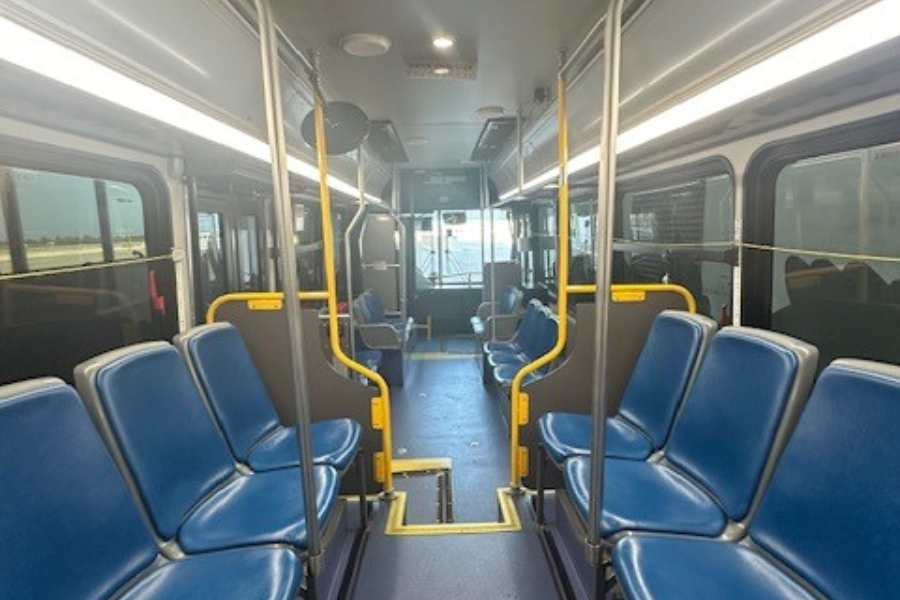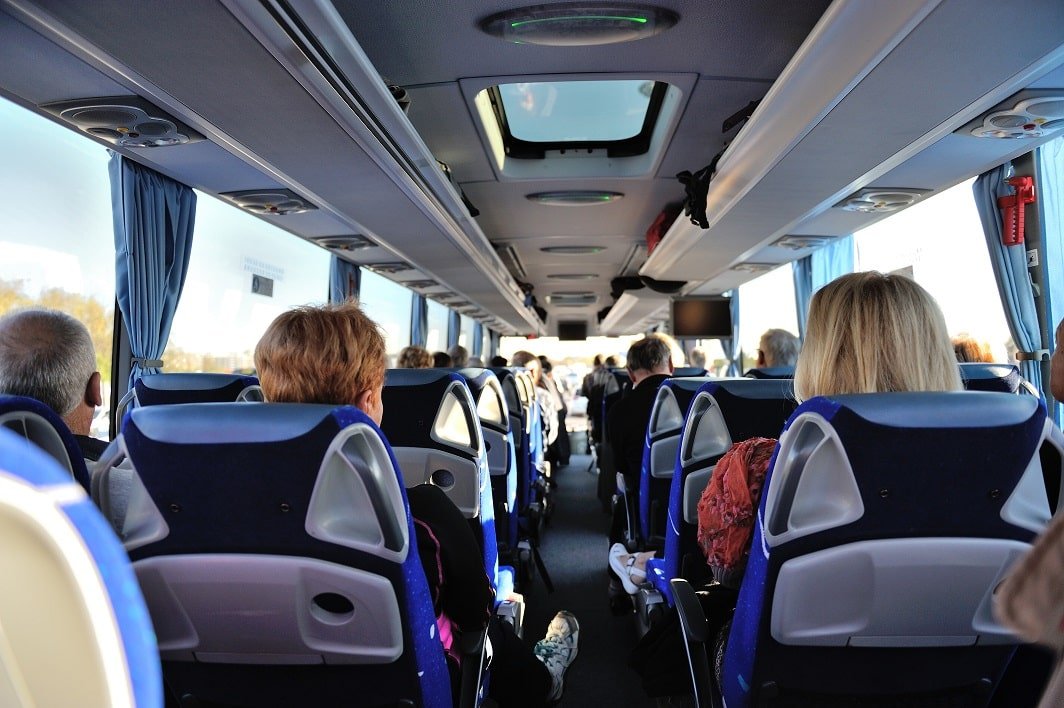20 Handy Tips For Deciding On Event Shuttle Websites
20 Handy Tips For Deciding On Event Shuttle Websites
Blog Article
Shuttle Transportation For Employees Ten Tips For Arranging And Completing The Route
Here are 10 top ideas for route planning and coverage to cover employee shuttles:
1. Know the needs of employees
Conduct focus groups or surveys in order to gain a better understanding of the locations of employees as well as their preferred shuttle schedules and any other specific demands (such such as accessibility). This information is essential in determining routes that will maximize the level of satisfaction and involvement.
2. Analyse traffic patterns
Learn about the traffic patterns and peak hours in areas around your business. Google Maps data on traffic can be used to identify congested paths and avoid these when shuttles are operating. This will decrease the number of delays, and to ensure a smoother journey.
3. Utilize Technology
Use software for route planning which can optimize routes based upon real-time data on traffic patterns and employee schedules. Apps specifically designed for shuttle service allow you to adjust routes automatically making sure that you're offering the most efficient service.
4. Establish Strategic Pickup Points
Find central pickup locations which are easily accessible by the majority of your workers. The locations near transportation hubs, residential zones and major intersections can maximize coverage without requiring unnecessary expansion of routes.
5. Create a flexible schedule
Develop a system for scheduling that permits a range of employee hours. Offering shuttles for peak times of arrival and departing, and also off-peak hours, will improve participation and cater to various shifts.
6. Create a feedback loop
Encourage your employees to provide feedback about shuttle services. It is possible to use the feedback to modify schedules, routes and pickup locations. It is essential to periodically evaluate the satisfaction of your employees in order to maintain a level of service that meets the needs of your employees.
7. Monitor and analyze usage information
Keep track of shuttle usage patterns to determine the routes that are most popular and which may need adjustment. Analyzing these data will help you make informed decisions regarding where to allocate your resources and how to enhance the quality of your services.
8. Encourage Ridesharing and Carpooling
Encourage your staff to use the shuttle service as well as carpooling program. It can help decrease the number of shuttles needed and improve flexibility. Apps that facilitate ridesharing can improve this effort and lower overall transportation costs.
9. Consider Environmental Impact
Shuttles that are energy efficient could be used to create routes with minimal carbon emissions. Promote the use hybrid or electric vehicles as shuttles. This not only aids in achieve sustainability, but can also have a positive effect on employees who value eco-friendly practices.
10. and Safety and Compliance
Assure that all shuttles adhere to safety rules and legal standards. Regularly maintaining vehicles, driver training and certification for drivers and insurance coverage are all part of this. Security should be a top priority in transportation planning.
Incorporating these strategies will help to create an efficient and efficient employee shuttle system that can meet the demands of your workforce while making sure safety is maintained and the best utilization of your resources. Read the top rated employee transportation blog for blog tips including airport rides near me, pick up service airport, bus airport shuttle, airport shuttle to airport, bus shuttle service, car service transportation, car service pick up, sfo airport transportation, airport transportation, airport service car and more.
10 Tips For The Cost And Budget Considerations Of The Transportation For Corporate Events
Here are 10 tips on cost and budget concerns for a corporate event transportation:
1. Cost Analysis - Comprehensive
Perform a detailed cost-analysis for every aspect of the service. This includes rental or leasing costs, as well as costs for fuel, the salaries of drivers as well as insurances, maintenance and other costs. Knowing the total costs helps to create a realistic budget.
2. Create an Clear Budget Framework
Make a budget which clearly states the amount of money your organization is willing and able to invest in transportation. This framework needs to include all expenses identified however, it should also provide some flexibility in order to cover any unexpected costs. Establishing a budget helps guide the decision-making process and ensures that transport costs are manageable.
3. Explore alternative transportation options
Compare the options of transport options available to you, like buses, shuttles vans or rideshare services. Evaluate the cost of each option by considering factors such as capacity, comfort, and convenience. Budgets for transportation can be maximized by selecting the most cost effective option that meets the requirements of attendees.
4. Handling Transportation Providers
Make sure to negotiate the contract so that you get the best price. Many transportation companies are willing to offer discounts to corporate events or bulk bookings. A good relationship with service providers could allow you to receive better rates as well as better services that ultimately aid your budget.
5. Plan for the Price of Fuel
Fuel costs could have a significant effect on the overall cost of transportation. Estimate the amount of travel and the distance needed to reach the event. Reduce costs by negotiating fuel-efficient vehicles with your transportation service.
6. Include Contingency Funds
Reserve a part of your budget for an emergency fund to cover unexpected expenses. Transport can be unpredictable due to issues like vehicle malfunctions or trips that aren't scheduled. Having contingency funding ensures that these situations can be addressed without compromising quality or causing overspending.
7. Think about discounts for groups and package deals
Transport providers may offer discounts for groups or package deals. Many companies provide reduced prices for large groups or corporate events. This could result in significant savings. Inquire about any available packages that include additional services, such as on-site coordination, or additional vehicles at a reduced cost.
8. Monitor and Track Expenses
Maintain a close watch on all transportation-related expenses throughout the planning and execution phases. Tools for budgeting and spreadsheets can be used to track costs real-time. Monitoring costs helps identify the areas where you can save and keeps the budget in line.
9. Get feedback for future Budgeting
After the event is finished, you should collect feedback from attendees about their transportation experiences and costs. The analysis of this feedback will provide information about the effectiveness of the transportation service and help you make the future decisions regarding budgeting. Recognizing what worked and what did not will aid in determining the best budget for future events.
10. The Total Cost Ownership
Examine the total cost of ownership (TCO) that comprises both the rental or purchase cost as well as ongoing expenses such as maintenance insurance, depreciation, and maintenance. This includes not only the purchase or rental price but also ongoing costs like maintenance or insurance as well as depreciation. Knowing the TCO helps in making informed choices that balance the cost of initial expenses with the long-term financial implications.
By following these tips, organizations can effectively control costs and make educated budget-based decisions regarding corporate event transportation services. Budget planning is crucial to ensure that the transportation needs for an event are covered, but it also helps in making the event enjoyable by allowing attendees to concentrate on the event instead of the logistics. A well-planned budget and cost management can boost your company's credibility and demonstrate that you are dedicated to accountability and efficiency. View the most popular click here about event transportation service for blog examples including logistics web, transportation specialists, transport mgmt, transport services near me, logistics web, us transport, transport systems, transport systems, logistics near me, transportation companies and more.